Your home is among your most valuable possessions, so you ought to protect it with homeowners insurance. Choosing among the many insurance providers can feel like an overwhelming task, but if you focus on the best home insurance companies, you can make things a lot easier for yourself. Here are some of our favorite home insurance providers for several common scenarios.
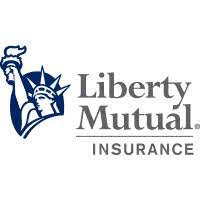
Bottom Line
Liberty Mutual has been in business for over 110 years and is one of the most respected names in the industry. As one of the largest homeowners insurers in the U.S., the company is known for having an AM Best rating of A and its strong philanthropic efforts, including helping the homeless, those with disabilities, and supporting education in underserved communities.
Pros
- One of the least expensive providers in our ratings
- Offers customizable coverages to include belongings, damages, and living expenses with inflation protection
- Multiple discounts, including 10% of purchasing online (in most states)
- Can manage policy and file claims through mobile app
- Optional coverage for water backup
Cons
- Almost three times the average number of customer complaints
- J.D. Power customer satisfaction rankings lower than average
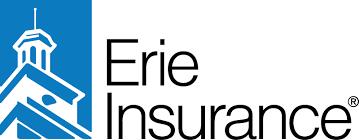
Bottom Line
Erie Insurance customers who bundle home and auto insurance could save up to 25% on their premiums. That's a tempting reason to consider it, but it's not the only one. Customers can also look forward to strong customer satisfaction ratings and guaranteed replacement cost coverage included at no additional cost. They also offer coverage for pets, gift card and gift certificate reimbursement, and hard-to-replace items. This coverage is included in all policies at no additional cost. Erie's base policy offers more flexibility and coverage options than many competitors.
Pros
- AM Best A+ Rating
- More than 13,000 agents with local presence
- Strong customer service ratings
- Unique coverage options included at no additional cost
Cons
- Only available in a handful of states
- Discounts change by state
- Can't purchase a policy without speaking to an agent
Homeowners Insurance Cost (Annual Average)
National Average = $1,569
States with Lowest Annual Premiums:
- Pennsylvania - $858
- Maryland - $1,213
- Ohio - $1,321
- Indiana - $1,340
- Virginia - $1,387

Bottom Line
Allstate offers some of the most generous discounts in the industry, which includes a discount up to 25% when you bundle home and auto policies, up to 20% when you switch to Allstate without a recent home insurance claim, 10% loyalty discount, and 5% automatic payment. Allstate also has an extensive network of agents.
Pros
- Customizable coverage options
- Many discounts available
- High customer satisfaction
- Large Allstate agent network
Cons
- Premiums can be costlier than some competitors
- J.D. Power customer satisfaction rankings lower than average
Homeowners Insurance Cost (Annual Average)
National Average = $1,863
States with Lowest Annual Premiums:
- Hawaii - $362
- Vermont - $590
- California - $602
- Washington - $760
- New Hampshire - $766
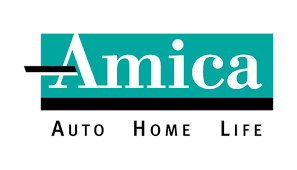
Bottom Line
Amica isn't as well known as some of the other home insurance companies on this list, but if you asked its customers about their experiences, most would probably give you glowing reviews. Amica Mutual ranks highest in J.D. Power's homeowners insurance segment for a second consecutive year. While its coverage options may not be as extensive as some of its competitors, it does the basics extremely well, and you won't find an equal to its dividend policies anywhere else. In addition, Amica has teamed up with Rocket Mortgage, and Amica policyholders can receive special loan pricing and save $2,000 on closing costs.
Pros
- Excellent customer satisfaction ratings
- Good selection of homeowners discounts
- Unique dividend policy option: Get up to 20% of your annual premium back
- Special loan pricing and savings of $2,000 on closing costs when using Rocket Mortgage
Cons
- Not available in all states
- Fewer endorsements than some of its competitors
- Dividend policy may cost more upfront
- Can't buy a policy online
Homeowners Insurance Cost (Annual Average)
National Average = $3,022
States with Lowest Annual Premiums:
- New Hampshire - $565
- Connecticut - $1,055
- Rhode Island - $1,119
- Massachusetts - $1,716
- Texas - $4,072
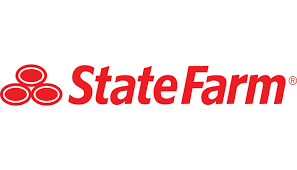
Bottom Line
State Farm notes on its website that you can save up to $1,127 on auto and home insurance. If you have an auto insurance policy, State Farm notes that you can add a homeowners, renters, condo, or life insurance policy and save up to 17% on home insurance premiums. State Farm offers customizable homeowners policies that include optional coverage for pets, identity theft, and water backup.
Pros
- Multiple discounts
- AM Best rating of A++ (Superior)
- No. 1 in overall customer satisfaction, according to J.D. Power's 2022 U.S. Auto Insurance Study for the Southwest
- Large network of more than 19,000 agents
Cons
- Discounts are limited in certain states
- State Farm premiums vary widely
Homeowners Insurance Cost (Annual Average)
National Average = $1,726
States with Lowest Annual Premiums:
- Hawaii - $411
- Rhode Island - $689
- Delaware - $795
- New Jersey - $821
- New York - $823
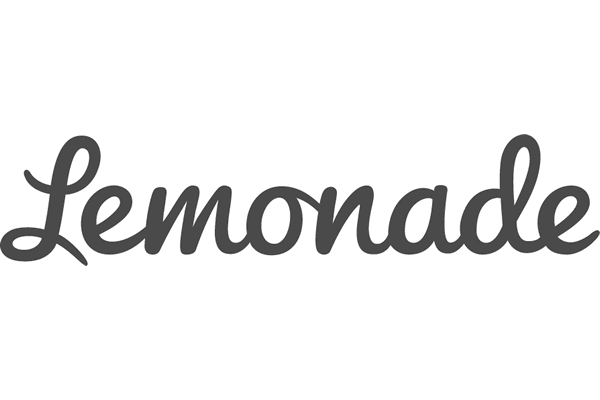
Bottom Line
Lemonade is a top destination for customers looking for cheap home insurance, with premiums starting as low as $25 per month. The company makes shopping for insurance easy by offering an all-online application process and instant answers. Policies can be managed primarily through the Lemonade app or online.
Pros
- Unused premiums are donated to charity
- Plans starting at $25/month
- Many claims are paid instantly
- Easy online application process
Cons
- Coverage isn't available in all states
- There are limited options for bundling coverage
- No in-person support

Bottom Line
While Travelers has a lot of great coverage options that appeal to a broad base of homeowners, it's especially popular with those interested in green homes and sustainable living. Not only does it offer green home coverage to help homeowners rebuild their home with greener materials, but it also rewards green homeowners with a sweet discount on their premiums. For example, you can save up to 5% if your home is certified a "green home" by the Leadership Energy and Environmental Design (LEED) organization.
Pros
- Coverage for green homes
- Option to add extra coverage for personal property
- Policies are widely available across the U.S.
Cons
- Poor customer satisfaction ratings
- Discounts vary by state
Stand-Out Coverage Options
- Green home coverage, which helps homeowners rebuild or repair their home with eco-friendly building materials
Homeowners Insurance Cost (Annual Average)
National Average = $4,824
States with Lowest Annual Premiums:
- California - $800
- New York - $928
- Delaware - $1,030
- Vermont - $2,070
- Pennsylvania - $4,145
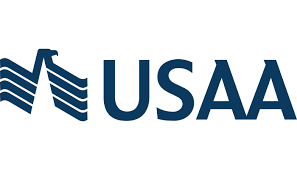
Bottom Line
USAA is the go-to home insurance provider for just about everyone who qualifies for it. Unfortunately, it's only available to military members, veterans, and their families. Homeowners who fall into one of these groups should definitely give it a look as it's often one of the most affordable home insurance companies around, and its customer satisfaction ratings are the highest in the industry. USAA would be ranked #1 in virtually all areas of the U.S. in J.D. Power rankings, but because it doesn't meet its award criteria, J.D. Power gives USAA a score but does not include it in the rankings
Pros
- Has the highest customer ratings scores by J.D. Power
- USAA offers more protection and added benefits for military members at affordable rates
- Option to save even more by bundling
Cons
- Only available to military members and their families
- Not many physical branches
Homeowners Insurance Cost (Annual Average)
National Average = $1,770
States with Lowest Annual Premiums:
- Washington D.C. - $802
- Vermont - $832
- Pennsylvania - $976
- New Hampshire - $996
- West Virginia - $999
What is homeowners insurance?
Homeowners insurance is a type of insurance policy that protects the policyholder's home and personal property against storm damage, theft, vandalism, and other hazards. It can also help homeowners pay to stay somewhere else if they're forced to vacate their current home.
However, a typical homeowners insurance policy doesn't protect homeowners against everything. Flood and earthquake damage are typically excluded. Those interested in these types of coverage must purchase a separate flood or earthquake insurance policy.
Who needs homeowners insurance?
Homeowners who have mortgages often have to deal with homeowners insurance lender requirements. This is where lenders require homeowners to purchase insurance to ensure it will still get paid even if the home is destroyed in a natural disaster.
Those who own their home outright aren't required to purchase homeowners insurance, but it's a good idea to have coverage anyway. Without homeowners insurance, you must pay for any damage to your home on your own, and this could easily cost tens or hundreds of thousands of dollars.
How expensive is homeowners insurance?
While homeowners insurance costs can vary based upon a variety of factors, data shows that there is a difference in cost for newer construction versus older homes. The national average premium for a home constructed in 2022 is $984 per year compared to homes built in 2012 which average $1464 per year. The average premium for homes built in 1972 is $1,755.
Additionally, homeowners who make improvements to their home can actually bring their home insurance premiums down with the right home updates. For example:
- An electrical upgrade in 2022: lowers premiums by $122 per year
- A heating upgrade in 2022: lowers premiums by $112 per year
- A plumbing upgrade in 2022: lowers premiums by $111 per year
- A roof upgrade in 2022: lowers premiums by $300 per year
How much home insurance coverage do I need?
There are two considerations when determining how much homeowners insurance coverage to buy:
- The types of protections you should put in place
- The policy limits for your insurance policy
Types of protections
Homeowners must get the right kinds of protections so they can transfer an appropriate amount of risk to an insurer. Specifically, it is important for a homeowner to have:
- Replacement value coverage for their dwelling and other structures. This will pay to repair or rebuild the home and other structures such as sheds or pools, in the event of a covered loss. Replacement value coverage is superior to market value coverage, which pays up to the amount the home is currently worth. If a home has declined in value, it could cost more to rebuild than it would sell for on an open market. Homeowners should make certain they can pay to replace their property, even if it is not worth that amount to rebuild.
- Liability coverage so they do not have to pay legal fees out of pocket or pay for a settlement or court judgment if someone is hurt on their property or if their pet harms someone.
- Loss of use coverage so they can pay the costs associated with being displaced if a covered loss occurs.
- Replacement value personal property coverage, which will pay to replace or repair possessions such as furniture and electronics that are destroyed by a covered loss. Replacement value coverage is especially important as old TVs and furniture may be worth very little and generally would cost much more to replace than their market value.
Without these coverages, a homeowner could face significant financial loss if something goes wrong.
Homeowners also should make sure they have coverage for all of the potential causes of loss they are at risk for. For example, many standard homeowners policies exclude floods or sinkholes. If these are a potential concern in the area where the home is located, homeowners should add a standalone policy or a rider that covers them.
Policy limits
Homeowners also must consider their policy limits. This is the maximum amount the insurer will pay when a covered loss occurs. If a property has replacement value coverage with a policy limit of $400,000, the insurer would pay a maximum of $400,000 in damages if the home was damaged or destroyed.
If the policy limits are too low, a homeowner may face uncompensated losses. This is a major concern especially with liability insurance as a victim could sue a homeowner personally to recover uncompensated damages above policy limits when serious injuries occur.
Many insurers also require property owners to buy coverage with a policy limit equal to at least 80% of the replacement value of the home. So, someone with a $400,000 home would need a policy limit of $320,000 or higher. Otherwise, the insurer would not pay the full amount of damages in the event of a covered loss.
Determining the replacement costs of a home can be complicated. Homeowners may be able to calculate this on their own if they know the square footage of their home and the rough cost of construction per square foot in their area. Online home value calculators or professional appraisers can also help homeowners determine how much home insurance coverage they need.
How to buy homeowners insurance
There are certain steps it is important to take when buying homeowners insurance. Here's what property owners need to do.
1. Determine the coverage they need
It is important to understand exactly what kinds of protections should be put in place when buying homeowners insurance. Homeowners typically require:
- Dwelling coverage to protect the dwelling
- Other structures coverage to protect other structures on the property, such as sheds and freestanding garages
- Personal property coverage to protect their possessions
- Loss of use coverage to pay for costs if displaced from a home
- Liability coverage to pay for losses caused to others
Homeowners should also consider whether they want open peril coverage, which pays for losses caused by any cause that isn't specifically excluded, or named peril coverage that pays only for losses by specified causes.
And, many people in dangerous parts of the country will need to obtain additional coverage not offered as a part of standard homeowners policies, such as sinkhole coverage, earthquake coverage, or flood insurance.
2. Decide on a deductible
Homeowners must pay a deductible out of pocket when making a claim. A deductible could be as low as a few hundred dollars or as high as a few thousand dollars.
A policy with a low deductible has higher premiums but homeowners will pay higher out-of-pocket costs. A policy with a high deductible has lower premiums, but the homeowner won't have to pay as much in the event of a covered loss.
Homeowners should consider the size of their emergency fund, as well as whether they would prefer to pay more to transfer additional risk and limit unexpected costs.
3. Obtain multiple home insurance quotes
Homeowners should obtain at least three different insurance quotes once they have determined what coverages they need. This can help to ensure they are getting the best price.
It's quick and simple to obtain insurance quotes online from most insurers. Homeowners can also choose to work with an agent. It is important to find an independent agent that has relationships with multiple insurers, as this will enable a homeowner to compare multiple different companies. Agents that work for a single insurer can only provide information on that insurer's policies.
When comparing quotes, remember this is just an estimate and the actual amount of premiums due may change after a formal application is submitted.
4. Compare apples to apples
When comparing quotes, homeowners need to ensure they are comparing similar offers from different insurers. This involves looking carefully at:
- The types of coverage
- The policy limits
- Whether the coverage is replacement value coverage (and will pay to replace property) or market value coverage (and will pay only what the property is currently worth)
- Add-ons or riders
- Whether the policy is an open peril or named peril policy
- What riders or add-on coverage is included
- The deductible
If a policy is more expensive but offers far more comprehensive coverage with a lower deductible, that policy could actually be the better deal. That's why it's so important to make sure quotes that are being compared offer a similar level of coverage.
5. Check to see if bundling coverage is worthwhile
Homeowners can often save by bundling insurance coverage. This means buying multiple policies from the same carrier, such as buying both home and auto insurance. Savings for bundling can be as high as 25% with some carriers.
However, this doesn't always mean that bundling is cheaper, especially if one insurer charges significantly higher rates for a specific kind of coverage such as homeowners insurance in a high-risk state. Consumers should get quotes for both bundled and separate coverage from different insurers to see what will provide the best price overall.
Consumers should also research the insurer's reputation for customer service and claims handling for all types of insurance that would potentially be bundled. That's because some insurers excel in providing a particular type of coverage, but offer substandard customer service with other policy types.
6. Research discounts available
Many discounts could be available when purchasing home insurance, including savings for avoiding claims for a certain number of years, working in a specific profession, membership in specific organizations, or working for a particular employer.
Having certain safety devices installed, such as an alarm or sprinkler system, could also result in reduced premiums.
Homeowners should research discounts different insurers offer, so they can see which provides the lowest price coverage after all their savings is applied.
7. Check the insurer's reputation
The purpose of insurance is to provide protection against loss. No homeowner wants to face a problem getting a claim paid. As a result, it is important to check the reputation of the insurer.
When buying coverage, consumers should review the database of the National Association of Insurance Commissioners to check how many complaints have been received for a particular company. It's also helpful to look at JD Power customer satisfaction ratings to see how satisfied customers generally are with particular home insurance companies.
8. Consider the insurer's financial strength
It's important that an insurer be financially sound so it can pay out claims promptly even in the event of a large-scale disaster. A.M. Best and Standard & Poor ratings offer insight into whether an insurer is financially sound.
9. Read the fine print
Finally, homeowners should read the fine print on their insurance policy when purchasing coverage.
It is important to understand what losses are covered, what is excluded, and whether any special policy limits apply. For example, many insurers limit coverage of jewelry or weapons or art or furs to $1,500, so those who have large gun collections or expensive jewelry or other specialized collections may need to buy add-on coverage.
By carefully reviewing a policy, a homeowner can make sure they have the coverage they need before disaster strikes and they are left without the financial support they need to rebuild.
How do I know that I am choosing the right home insurance company?
There are many factors homeowners must consider to determine if they are choosing the right home insurance company. Here are some of the big things a consumer should look at when shopping for insurance.
- Customer service: Homeowners want to be sure their insurer will pay a claim promptly and without hassle if a covered loss occurs. When shopping for insurance, it is helpful to read reviews of insurers online. Consumers can also look at JD Power customer satisfaction ratings. They should also review the complaint database of the National Association of Insurance Commissioners to see how their potential insurer fared in terms of the number of consumer complaints received.
- Available policy options: There are differences in coverage options among different insurers. For example, some insurers may offer add-ons like building code coverage that pays extra to bring old properties up to current codes in the event of a covered loss. Some also offer more options for add-on protections, such as sinkhole coverage. It is important for homeowners to ensure their preferred company provides the desired protections.
- Premium price: On average, U.S. homeowners pay around $1,800 annually for coverage. However, the size of a home, its value, and its location all play into how much coverage costs. Homeowners will need to compare prices among several different insurers to see which offers the most affordable premiums.
- Policy discounts: Many homeowners insurance companies offer discounts for things like affiliation with a particular company or organization or the installation of certain safety features in a home such as an alarm system. Homeowners should explore the types of discounts each insurer offers to make sure they are not missing opportunities to save.
- Bundling options: It is often less expensive to buy multiple types of coverage from the same insurer. This is called bundling. For example, a homeowner could save up to 25% by combining home and auto coverage. Typically, the more policies an insurance buyer bundles from a company, the greater the savings. So, homeowners may want to look for a company offering multiple types of coverage they are interested in.
- Financial strength: Homeowners want to ensure their insurance company has the money to pay out claims as promised and will not fail if a covered disaster such as a tornado affects many houses and causes many claims to be made. A.M. Best and Standard & Poor both provide financial strength ratings for insurance companies, which policyholders should review.
Homeowners may also wish to consider other factors such as the ease of applying for coverage, and whether in-person customer service is available if desired.
Homeowners Insurance by State
The value of bundling home and auto insurance
Bundling home and auto insurance coverage typically saves consumers around 25% although the specific savings can vary by insurer. Bundling also has other advantages, including the following:
- Easier policy management: It can be easier to work with just one insurer when buying coverage. If a claim must be made, it's often also easier to work with only one insurer. For example, if a tree falls on a vehicle in a driveway and a homeowner has bundled home and auto coverage, there are fewer complications in determining which insurer should pay for damages.
- Eligibility for umbrella insurance: Homeowners may wish to purchase an umbrella policy that provides supplementary coverage. This pays for excess damages above liability policy limits if the homeowner is responsible for hurting someone and damages are extensive. To cover a homeowner for injuries that occur both at home and while in a vehicle, some umbrella insurers require the homeowner to have home and auto policies with the same carrier.
- Reduced risk of losing coverage: A policyholder who has multiple policies with the same company is less likely to be dropped if a problem arises, such as an accident or a speeding ticket, that makes them a higher-risk customer.
There are also some downsides to bundling home and auto though. Specifically:
- Loss of ability to choose the best company for each specific kind of protection. In some cases, an insurer excels at handling auto claims but isn't as good at handling home insurance claims. This could mean a consumer settles for poor customer service with one type of policy if they bundle coverage.
- Higher premiums. Usually a bundled coverage discount makes buying multiple policies from the same carrier cheaper. But there are times when it would be more cost effective to buy separate policies from different companies if each one independently offers lower rates for a specific kind of coverage.
Before bundling coverage, consumers should research the customer service ratings and complaints for both home and auto coverage with the carrier they are considering. They should also compare prices for separate and bundled coverage to ensure they are getting the best deal, and should make sure the carrier offers the types of protections they need for both home and auto coverage.
| Offer | Best For | Next Steps |
|---|---|---|
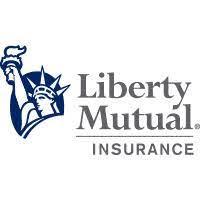
Liberty Mutual
|
Great For: Best for optional coverages | |
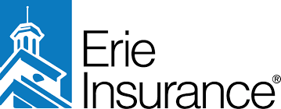
Erie Homeowners Insurance
|
Great For: Best for flexible policies | |

Allstate
|
Great For: Best for generous discounts | |

Amica
|
Great For: Best for customer service | |
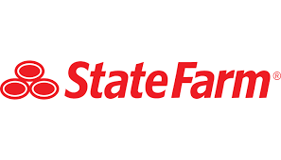
State Farm
|
Great For: Best for bundling policies | |
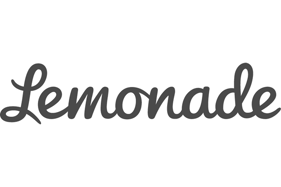
Lemonade
|
Great For: Best for tech-savvy shoppers | |

Travelers
|
Great For: Best for green homes | |
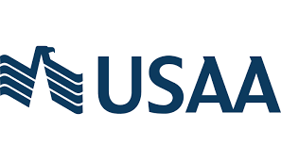
USAA
|
Great For: Best for military members and their families |
Ask the experts

Dr. Patrick van Esch
Assistant Professor of Marketing, Kennesaw State University
How do you think climate change will impact homeowners insurance?
With droughts, fires, floods, and sea-levels on the rise, so too will insurance premiums. Insurance firms continue to assess the risk profile of consumers, the economy, and the environment in relation to the products they offer. With inevitable increases in homeowners insurance premiums, consumers may be forced to pay higher prices for plans that actually provide less in terms of coverage. Worse still, consumers may even be dropped by their insurer. Remembering that insurance is state-regulated (for example, the Federal Insurance Office or the Dodd-Frank Wall Street Reform and Consumer Protection Act), if consumers experience such challenging circumstances, they can contact their state’s department of insurance to find out if their insurance provider is breaking the law.
What can homeowners concerned with weather threats do to make sure they’re covered?
If buying a house, always consider the location and check if it is part of a fire, flood, or extreme weather zone. If you already own a home in a high-risk area, look for ways to reduce your risk and expenses. For example, look for opportunities to weatherproof your future or existing home. Moreover, when selecting an appropriate insurance policy, look for an insurer that gives pricing discounts for adding weatherproofing. Lastly, many financial factors determine the price of insurance policies, so it's important to build and maintain a good credit score.
What should homeowners do if their policy is canceled as the result of a weather emergency?
Don’t give up! Contact the insurance provider and seek advice on what you might be able to change for them to insure you again. If that fails, shop around as there are many mainstream and independent insurers offering different types of policies at a range of different prices. Additionally, talk to family and friends and ask which insurer they use, as those firms already have a precedence of insuring houses in your particular location. Lastly, if you can’t get an insurance firm to provide you cover, reach out to your state department. They may be able to offer a Fair Access to Insurance Requirements (FAIR) Plan. But remember, these types of plans only cover the bare-minimum.

Prachi Gala
Assistant Professor of Marketing at Coles College of Business at Kennesaw State University
How do you think climate change will impact homeowners insurance?
We have already noticed a lot of weather reactions resulting from climate change. These weather changes come in the form of more tornadoes, flooding, and fires, among many others.
There are at least two ways that climate change will affect homeowners insurance:
- A potential increase in your homeowners insurance rate. Once your annual contract is up, the renewal of that contract may showcase a rate increase. In such cases, you can do two things:
- Negotiate with the company to reduce the rate
- Shop around and check the quotes from other home insurance companies
- Specific damages are not covered. For example, you stay in an area which is not flood prone. Due to climate change, there was flooding in your area and your home did face some damage. Because your area was not under the flood zone, your company never covered it -- and you end up paying for it. So it's best for you to check the coverage policy and ask for some additional coverage, if that gives you peace of mind.
What can homeowners concerned with weather threats do to make sure they’re covered?
Customers can always ask for additional coverage. For example, your home insurance company may suggest that you don’t need the flood coverage, as you are not in a flood prone area. In that scenario, you can ask them to cover you, for an additional cost, if you think that climate change could make your area flood prone. Depending on where you live and your insurance company, things that are usually not covered include:
- Earthquakes
- Water damage
- Ice quakes and ice surges
Moreover, read the renewal of policies very closely. Ask a lot of questions and negotiate where needed. Clarify the coverage terms with your agent, and ask for additional coverage if you think your area will soon be newly prone to things like flooding or earthquakes.
Finally, look for other companies that have better rates. It's always safe to enquire and shop around with at least three more companies to see what they offer and how it compares with your current policy. If they are providing better coverage, changing your insurance may be the right move.
What should homeowners do if their policy is canceled as the result of a weather emergency?
- Check the federal and state laws to see if your insurance company is allowed to cancel it and under what circumstances. You can always challenge that decision, if there are certain laws that the company needs to abide by, before canceling it.
- Reach out to your homeowners association, neighbors, or anyone from your community. See if they are facing similar issues or if they are aware of any better insurance company options.
- Call multiple insurance companies yourself to get a quote and understand their policies towards these changes.
- Negotiations work. It can help to call the company’s customer service to check on what you can do to get it covered.
- Check the Fair Access to Insurance Requirements (FAIR) plan.

Tim Zhang
Finance Professor at University of Wyoming
How do you think climate change will impact homeowners insurance?
With the increasing impact of climate change, U.S. homeowners have already started to see multi-faceted changes to their home insurance. For example, more extreme weather is causing insurance premiums to rise. But in places that are more vulnerable to extreme weather, residents have more extensive insurance options.
However, weather emergencies started to visit unexpected places where insuring your properties used to seem unnecessary. In those areas with an extremely high risk of climate disaster, insurers have canceled home insurance policies to protect themselves, leaving local residents unprotected. In recent years, climate change has become more like a systematic risk factor, significantly affecting the rate and availability of homeowners insurance.
What can homeowners concerned with weather threats do to make sure they’re covered?
Knowing what to expect from weather threats and when to expect them is a good starting point. As a homeowner, you need to know every detail of your policy -- since your insurance coverage can depend entirely on the policy you choose and what coverage is available in your state. For instance, many people with homeowners insurance are not aware that flood damage is not included in their coverage. Make sure you add any weather-related risk to your coverage from the start and plan ahead. Many companies will not allow you to add additional coverage within 30 days of a predicted weather event.
What should homeowners do if their policy is canceled as the result of a weather emergency?
If your policy is canceled due to a weather emergency, your first step is to call your agent or carrier to find out why it is being terminated and see if you can convince them to keep your coverage. In some cases, you may be able to make changes to your home or policy, such as repairing a damaged roof, which will satisfy the insurance company. If you're not able to convince your agent, or you're having trouble finding another affordable home insurance, check with your state’s department of insurance. They may provide a list of carriers who are capable of providing coverage in your area. Do it as soon as you can, because your lender may purchase a new home insurance policy on your behalf and expect you to pay for it.

Brian Adams
Associate Dean of Graduate Business Programs at University of Portland’s Pamplin School of Business
How do you think climate change will impact homeowners insurance?
U.S. insurance firms have already begun to assess the potential financial impact of climate risk exposure. Looking at this trend from a positive viewpoint, homeowners in areas of the country with a higher probability of loss from climate change should be protected from significant loss through their homeowners insurance. However, this added protection will likely come with higher premiums and with additional language in homeowners policies regarding climate risks and what is not covered by insurance.
What can homeowners concerned with weather threats do to make sure they’re covered?
As with all financial services we purchase, it benefits the consumer to establish relationships with their brokers and agents at banks, insurance companies, real estate firms, and more. The better communication you can build with your financial institutions, the more likely you will be fully informed on the financial services you have purchased. It also helps you get your questions answered quickly.
What should homeowners do if their policy is canceled as the result of a weather emergency?
It is difficult for a homeowner to have risk management options if their policy is already canceled. This is why it is imperative to have people you regularly talk with at the insurance firm you use. Ask your agent/service representative about climate risk language in your homeowners policy. If you feel that your policy does not effectively manage your climate risk exposure, then shop for a new insurance company before there is an issue.

Suzanne Hollander, Esq.
Real Estate Law Professor at Florida International University’s Hollo School of Real Estate
How do you think climate change will impact homeowners insurance?
The impact of climate change (increased flooding, sea level rise, hurricanes, and other natural disasters) will lead to increased homeowners insurance premiums in locations prone to these types of natural events. On the other hand, homeowners insurance premiums may decrease in locations that are not prone to these types of events.
Depending on the amounts of the increase, homeowners tolerance may be tested to an extreme, finally underlying a homeowner’s (or a commercial property owner’s) decision to vote with their feet and move to a location where insurance premiums and costs of living are lower.
To combat property owners' flight caused by increased insurance rates, the local, state, and federal government may consider capping and limiting the percentage insurance companies may raise insurance premiums per year.
What can homeowners concerned with weather threats do to make sure they’re covered?
Verify their policy. Read it. Make sure they have all the requirements for the area in which the property is located.
What should homeowners do if their policy is canceled as the result of a weather emergency?
Immediately contact their lender. It may be a mortgage default if the homeowners insurance is canceled.
Homeowners Insurance Ratings Methodology
The data found on this page is a combination of publicly available quote data obtained directly from the carrier as well as insurance rate data from Quadrant Information Services. These rates were publicly sourced from the top ten (10) to fifteen (15) carrier markets, within each state, based on annual written premium and should be used for comparative purposes only -- your own quotes may be different.
Insurance products are then rated on a scale of one to five stars, primarily focusing on:
Pricing
With so many options for insurance across the board these days, it's easiest, and quite effective, to first look at the bottom line. Do single out competitive prices across insurance categories it's important to focus on:
- Deductibles
- Terms
- Coverage
- The fine print
Discounts
Insurance provides coverage for unexpected financial burdens and piece of mind. But it's important to check your policies and see how you can lower your premium. Insurance companies offer discounts for all sorts of things now from safety devices to good grades to automatic bill pay. Pay attention to:
- Discounts offered
- Variety of discounts
- Discount qualifications
Perks/Benefits
The benefits of insurance these days have gone far beyond just what your policy covers. Most companies and policies come with perks -- some of which may be completely unrelated to your insurance policy. Take a look at:
- Non-pricing related perks offered
- Benefits unrelated to your coverage
- Perks that stand out in the industry
- Will you actually use the benefit?
Customer Service/Claims Process
Policy research and coverage options are great, but how is the process when you have to actually use your insurance policy? The best coverage doesn't hold much value if it's a hassle to get paid out. Pay special attention to:
- How hard it is to file a claim
- If your provider has a history of resisting payouts
- The customer satisfaction scores for your provider
FAQs
-
The 80% rule is applied by many homeowners insurance providers to ensure homeowners buy enough coverage. Specifically, an insurer will only pay the full amount for a covered loss if a homeowner purchased replacement coverage insurance equal to at least 80% of the home's replacement value.
Let's say a home would cost $400,000 to replace. A homeowner must have a replacement value policy with a coverage limit of at least $320,000. Otherwise if a covered disaster happens, the insurer will only pay a proportion of the damages. This is true even if the damage is less than the coverage limits. The proportion an insurer will pay is determined based on the amount of insurance purchased, relative to the amount that should have been purchased.
If the homeowner purchased $300,000 in coverage, they purchased 93.75% of what they should have. Only 93.75% of their damages would be paid for. If $250,000 in damage occurred, even though this is below the $300,000 policy limit, the insurer would only cover $234,375 (93.75% of it) due to the 80% rule.
-
The most common type of homeowners insurance is called an HO-3 Policy or a Homeowners Policy Special Form. This is an open peril policy. That means it covers the homeowner from losses resulting from all causes, except those that are specifically excluded (floods or sinkholes are common exclusions).
An HO-3 Policy typically provides coverage for the following, with many insurers setting limits on the amount of coverage:
- The dwelling
- Other structures on the policy (often limited to a maximum of 10% of the dwelling coverage)
- Personal property (often limited to 50% of the dwelling coverage, personal property is usually covered only if the damage results from a named peril -- a cause specifically listed in the insurance policy)
- Loss of use (often limited to 10% of the dwelling coverage)
An HO-3 Policy also provides personal liability coverage that protects a homeowner from claims arising if someone else is harmed on his property or by his pet. The homeowner may choose the amount of liability coverage they want to pay for.
-
Most homeowners insurance policies include the following types of coverage:
- Hazard insurance: This pays for covered losses to the home or other dwellings that result from causes such as wind, fire, smoke, vandalism, civil commotion, and hail.
- Loss of use: This pays for the homeowner's alternative living arrangements while a home is being fixed or rebuilt following a covered loss.
- Personal property coverage: This pays for repair or replacement of possessions damaged by a covered loss.
- Liability coverage: This pays legal bills and a settlement or court judgment if someone is harmed on the owner's property or by an owner's pets.
Homeowners should make sure to get a comprehensive policy offering all the types of coverage they need.
-
A standard homeowners insurance policy will exclude damage from certain types of losses, such as floods, wildfires, earthquakes, sinkholes, or damage by war or nuclear hazards. Wear and tear, damage caused by insects or other pests, rust, mold, and rot are also typically excluded.
Homeowners can purchase standalone policies or riders to obtain coverage for some perils that a standard homeowner's policy excludes. For example, FEMA makes flood insurance available to homeowners in a flood zone.
-
It is beneficial to get at least three quotes for homeowners insurance in order to make sure insurers are charging a fair price. Premiums and coverages can vary from one insurer to another, as can eligibility for discounts. By shopping around, a homeowner can make sure they do not overpay and that they are getting the full extent of protections they need.
Homeowners should also consider obtaining quotes annually to explore new policies that have come on the market or learn whether the offerings of existing insurers have changed. Periodically shopping around for insurance will allow property owners to avoid overpaying and ensure they always have the best coverage at the most affordable price.
Our Insurance Expert
We're firm believers in the Golden Rule, which is why editorial opinions are ours alone and have not been previously reviewed, approved, or endorsed by included advertisers. The Ascent, a Motley Fool service, does not cover all offers on the market. The Ascent has a dedicated team of editors and analysts focused on personal finance, and they follow the same set of publishing standards and editorial integrity while maintaining professional separation from the analysts and editors on other Motley Fool brands.